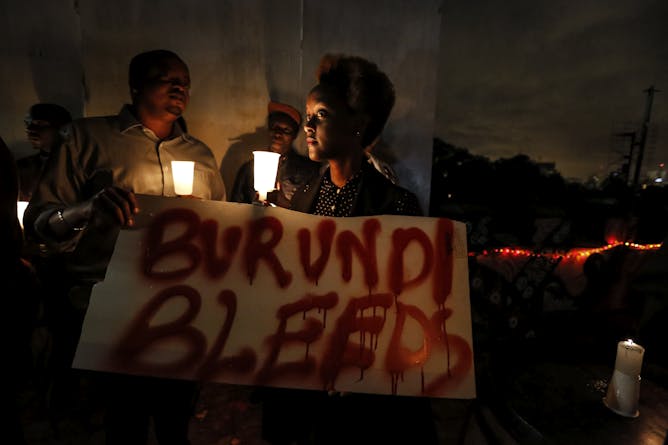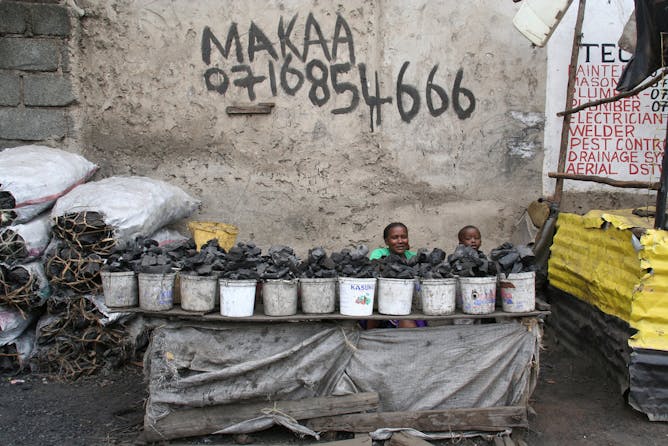|
Burundians are due to go to the polls today to vote in a referendum that would see big amendments to the country’s constitution. One of the most contentious issues is the plan to extend presidential terms from five years to seven, a move that would consolidate leader Pierre Nkurunziza’s power. Mimmi Söderberg Kovacs, Angela Muvumba Sellström and Jesper Bjarnesen write about the latest threat to the country’s democracy.
The Kenyan government is trying to clamp down on charcoal production amid concerns that it’s causing environmental damage. But Mary Njenga argues that this isn’t the right approach. Many Kenyans rely on charcoal, for income and for cooking. Instead of trying to ban production, it should be made more efficient and sustainable.
|

A sign at a candlelit vigil tells the story of a country sliding further into authoritarianism.
DAI KUROKAWA/EPA
Mimmi Söderberg Kovacs, Uppsala University; Angela Muvumba Sellström, Fondation Maison des Sciences de l'Homme (FMSH) – USPC; Jesper Bjarnesen, Nordic Institute Africa
If the referendum goes President Pierre Nkrunziza's way, it will also be a further blow to ordinary Burundians, who live in a state of hardship and adversity.
|

A woman sells charcoal in Nairobi, Kenya.
Flickr/Laura Rantanen
Mary Njenga, World Agroforestry Centre (ICRAF)
There are some big misconceptions about the charcoal sector and its role in environmental damage
|
Education
|
-
Lara-Stephanie Krause, University of Cape Town
It's not far-fetched to suspect that the common understanding of the idea of "mother tongues" in South Africa is coloured by outside influences.
|
|
Politics + Society
|
-
Herman Wasserman, University of Cape Town
The sustainability of the news media is a precondition for good journalism in the public interest. Thus, economic questions should form part of discussions of press freedom.
|
|
From our international editions
|
-
Netina Tan, McMaster University; Cassandra Preece, McMaster University
Malaysian voters tossed the corrupt Najib Razak out of office despite efforts by his party to sway the result. A former dictator is back in charge, about to free his onetime political foe from jail.
-
Daniel Smith, University of Glasgow; Laura Lyall, University of Glasgow
Largest study to date finds link between disturbed circadian rhythm and mood disorders.
-
João Feres Júnior, Rio de Janeiro State University; Fabio Kerche, Fundação Casa de Rui Barbosa
Leftist former President Lula da Silva is the clear favorite in Brazil's 2018 presidential race, leading his closest rival — a firebrand conservative — by 15 points. The only problem: He's in jail.
|
|